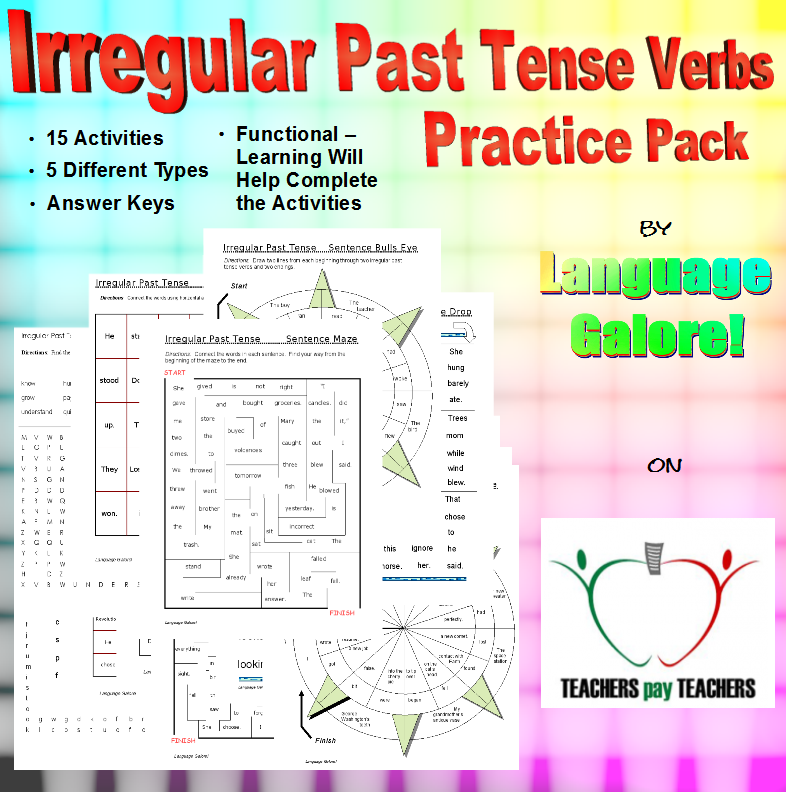Chances are that if you have a kid with a language disorder, you have a kid with verb tense problems. Verb tense overlaps with many language skills, such as subject-verb agreement, production of infinitive verbs, irregular past tense, question formation, and helping verbs. Research suggests that omission of tense marker (“zero marking”) is the most prevalent kind of tense error in children with SLI (Marchman, Wulfeck, Weimer, 1999). Tests that assess for verb tense include the OWLS, CASL, CELF, PLS, and SPELT tests.
Elicitation Ideas
Tense allows us to more effectively communicate information related to when something occurs, occurred, or will occur, as well as more effectively understand if the occurrence has been completed, is in progress, or will occur continuously. The inference of tense is a frequent method of language simplification. When an adult asks, “What did you do at school today?” and a child answers “Play with my friends,” the inference is that the event has already occurred. Normally developing children acquire aspects of tense production, such as the –ed morpheme, that allow them to avoid potential confusion resulting from tense omission.
In the English language, tense co-occurs with aspect, which concerns the description of an event relative to its completion, repetition, or continuing duration. Different languages use various techniques to express differences in tense. Latinate languages, in particular, use a variety of morphological endings to express when something happens (Crystal, pg 196). English only uses three: the –s, –ed, and -ing endings. Other tenses are communicated through irregular forms, auxiliary verbs, and adverbs.









November 5, 2014 at 1:24 pm
I’m always stumped at the best place to find good pictures like this. I’m certain companies make them….any ideas?
LikeLike
November 5, 2014 at 10:16 pm
This site – http://freelanguagestuff.com/. Yes, it’s a site that I run, but there’s tons of similar pictures there, and all free.
LikeLike